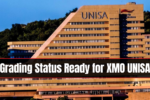UNISA Higher Certificate in Nursing. The UNISA Higher Certificate in Nursing stands as a pivotal educational offering for those aiming to enhance their expertise in Health Services Management, Education, and Community Health. This program, distinguished by its comprehensive structure and high standards, promises a transformative journey for its participants. Here’s a detailed exploration of what prospective students can expect, from enrollment to graduation.
Qualification Details and Program Structure
The UNISA Higher Certificate in Nursing is marked by its Qualification code: 0216X-HSM and is positioned at an NQF level 6, accumulating a total of 360 credits (SAQA ID: 5365, APS/AS: 20). The program consists of 30 modules, focusing on three major areas: Health Services Management, Education, and Community Health, providing a robust foundation for future healthcare professionals.
Registration Requirements and Eligibility
Registration for the BA (CUR) demands an Annual Practising Certificate, verifying one’s registration as a general nurse and a midwife. Issued by the South African Nursing Council (SANC) or equivalent authority, this certificate is crucial for compliance with the registration prerequisites. Importantly, only those registered as midwives are eligible for the complete BA (CUR) program, whereas others may opt for the BA (CUR)-HHS path, exclusive of midwifery.
Career Opportunities and Skills Development
The curriculum is meticulously crafted to equip students with essential skills required in today’s dynamic healthcare environment. Graduates of this program are well-prepared to tackle challenges in professional communication, manage intricate financial and administrative tasks, support organizational goals, and uphold the highest standards of ethical conduct in all client interactions. These skills are indispensable for enhancing the quality of communication and operational efficiency within both public and private healthcare sectors.
Admission Process and Module Selection
Prospective students can apply for admission if they have received an offer of placement from UNISA and accepted it online. It is critical for students to apply for their chosen qualification within the designated application periods. Module selection is strategic; with prerequisites and co-requisites designed to ensure a coherent and cumulative learning experience. Students must manage their study schedule effectively, adhering to the stipulated credit limits—60 credits per semester or 120 credits per academic year—to ensure optimal academic outcomes.
Study Commitment and Time Management
Effective time management is crucial for success in this program. Students should anticipate dedicating approximately 6 to 8 hours per week for semester modules, and slightly less for year-long modules. Balancing this commitment with personal and professional obligations is essential for maintaining academic performance and achieving educational goals.
READ ALSO
- FASSET Internship Programme 2024/2025
- How Much is UNISA NSFAS Monthly Allowance?
- UNISA Courses in Teaching Foundation Phase
- Can I Do Diploma In Teaching At UNISA?
- Which Course Do I Qualify Without Matric?
- UNISA Payment Methods and Banking Details 2024-2025
- Unisa Online Application
Conclusion
The UNISA Higher Certificate in Nursing is more than just an academic qualification; it’s a gateway to significant professional development and personal growth in the field of healthcare. This program not only prepares students for current and future healthcare challenges but also instills a lifelong passion for service, learning, and excellence in the healthcare industry. For those aspiring to make a difference in the health services sector, the UNISA Higher Certificate in Nursing is an excellent starting point.










